BioShock, Brave New World, and a Dash of Radiohead
Hope springs eternal—but if it dies, the crash is spectacular #literature #utopia #dystopia #music #videogame
Welcome back to Artcade, the cheapest artists’ hostel around. One of those places that, right after high school, feels like luxury, but ten years later makes you swear “never again.” Any resemblance to real hostels is purely coincidental. So—what if, this time, we searched for a place to sleep straight out of the future, packed with all the comforts a proper utopia should offer? Tempting idea, but—as we’ll see—utopias rarely keep their promises. Enjoy the read!
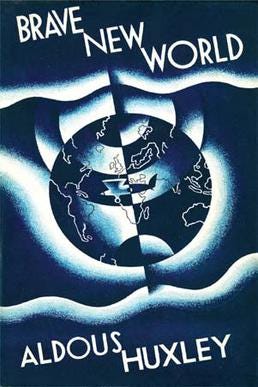
Hot tunnels alternated with cool tunnels. Coolness was wedded to discomfort in the form of hard X-rays. By the time they were decanted the embryos had a horror of cold. They were predestined to emigrate to the tropics, to be miners and acetate silk spinners and steel workers. Later on their minds would be made to endorse the judgment of their bodies. ‘We condition them to thrive on heat,’ concluded Mr. Foster. ‘Our colleagues upstairs will teach them to love it.’
‘And that,’ put in the Director sententiously, ‘that is the secret of happiness and virtue—liking what you’ve got to do. All conditioning aims at that: making people like their unescapable social destiny.’
In Aldous Huxley’s Brave New World there are several classes of people, conditioned from the embryonic stage to fulfill a precise social purpose.
‘I’m glad I’m not an Epsilon,’ said Lenina, with conviction.
‘And if you were an Epsilon,’ said Henry, ‘your conditioning would have made you no less thankful that you weren’t a Beta or an Alpha.’
Aldous Huxley (2024) [1932] Brave New World [Literature] [Utopia/Dystopia] Indica Publishers
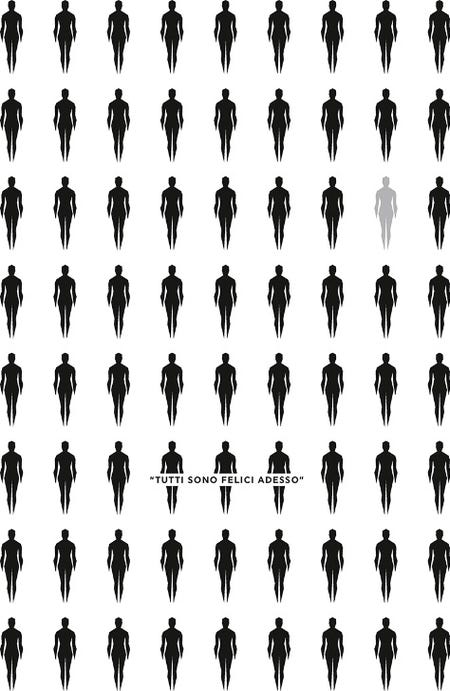
Huxley serves up an unsettling truth: you can’t make everyone happy. A society that claims to do so must cheat its citizens—granting bliss, yes, but stripping them of their will. Or, as Radiohead once sang:
Calm / Fitter, healthier and more productive / A pig / In a cage / On antibiotics
The Brave New Worlders could take holidays from their black moods, or from the familiar annoyances of everyday life, without sacrificing their health or permanently reducing their efiiciency.
In the Brave New World the soma habit was not a private vice; it was a political institution, it was the very essence of the Life, Liberty and Pursuit of Happiness guaranteed by the Bill of Rights. But this most precious of the subjects' inalienable privileges was at the same time one of the most powerful instruments of rule in the dictator's armory. The systematic drugging of individuals for the benefit of the State (and incidentally, of course, for their own delight) was a main plank in the policy of the World Controllers.
Aldous Huxley (1958) Brave New World Revisited [Non-fiction]
The long-dreamed utopia is, in fact, a prison. It’s the same logic as those too-good-to-be-true ads cluttering social media: if it looks like magic, it’s probably a scam.
The most important Manhattan Projects of the future will be vast, government-sponsored investigations into what politicians and scientists will label “the happiness problem”: in other words, the problem of making people love their own slavery. Without economic security, the love of servitude cannot take take hold.
—from the preface to the 1946 edition
(quoted from the 2015 Italian edition published by Mondadori and re-translated)
Video games love to open with catastrophe, and BioShock is no exception. One minute you’re on a trans-Atlantic flight, gift from Mom and Dad in hand; the next you’re plunging into the ocean.
The player swims away from the burning wreckage and spots a lone tower rising from the waves. The plane is sinking, options are zero—he must go in. That’s our welcome to Rapture, an underwater city built by a visionary with a head full of utopian dreams. And you know how utopias go: sooner or later, they turn on their makers.
No spoilers beyond the setup: Rapture lies in ruin. Something went irreparably wrong right after New Year’s Eve 1959—exactly one year before your crash (see image below).
The inhabitants juiced themselves with genetic enhancements, gaining extraordinary powers while turning into haunted-house extras. And if that wasn’t enough, soon you’ll meet the city’s iconic duos, linchpins of its moral dilemma: the Little Sisters and the Big Daddies.
Each time you take down a Big Daddy you face a choice: harvest the Little Sister or save her? Embrace monstrosity or defend the scraps of humanity?
Wandering Rapture—peering at the abyss through huge glass windows—is terrifying not merely for its jump-scares, but because every corner is a monument to corrupted human aspiration. As in Brave New World, push a utopia far enough and it flips, instantly, into dystopia.
Blind Squirrel Games [Irrational Games] (2016) [2007] BioShock (Remastered) [Video game] [First-person shooter, Action-RPG, Survival horror] [12 Hours] (Playstation 5) [Xbox 360/One/Series X/S, PlayStation 3/4, Windows, macOS, Nintendo Switch] 2K Games
Information Desk:
Aldous Huxley was a big proponent of inner exploration via psychedelics—a chapter he details in the essay The Doors of Perception. Jim Morrison’s band (The Doors) grabbed its name from that book.
Want to take the cultural temperature of any era? Compare how many utopian and dystopian novels have been published across the centuries. In the 19th and early-20th centuries, optimism reigned. From 2000 onward, hope nosedived and dystopias became our daily bread.
Can we quote Radiohead without listening to them? Here’s Fitter Happier, the least musical “track” on OK Computer—more spoken-word poem than song.
My last two coins
Deep down I’m a pessimist: I plan escape routes for disasters, sketch contingencies, rehearse worst-case scenarios. Ask me for a prediction and I’ll start with doom. Yet whenever I do something—publish an Artcade piece, say—some secret filament in my brain lights up: This will be loved! Everyone will share it! When I write a novel, the same filament whispers: It’ll land with a top publisher and everyone will read it, of course. A stubborn optimism keeps sneaking in, thank heavens. I don’t know who planted it or why, but I’m glad it’s there.
Until the next episode, ciao!


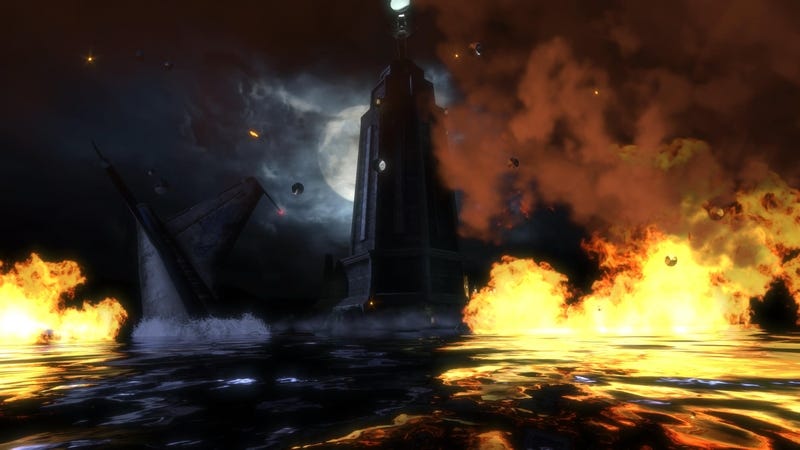
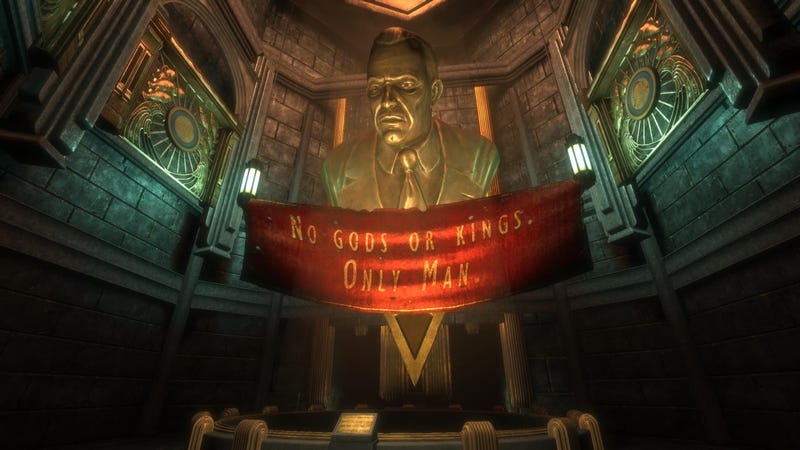
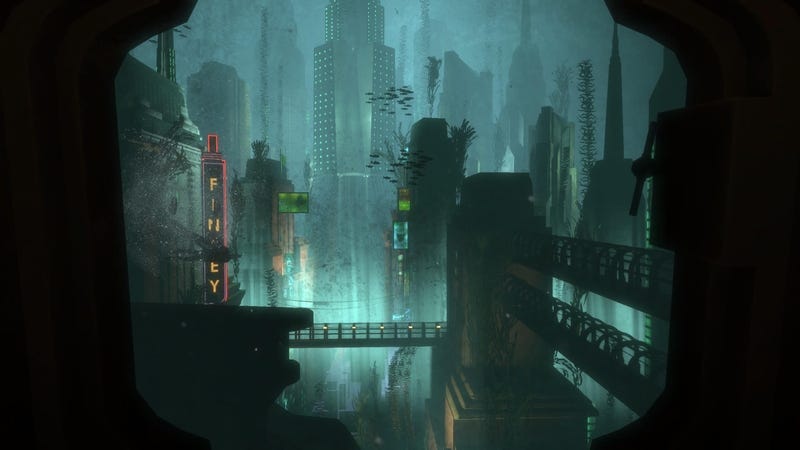
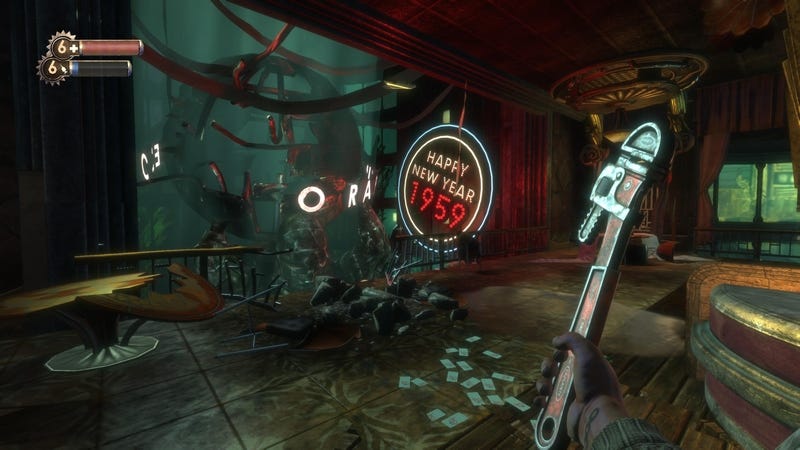
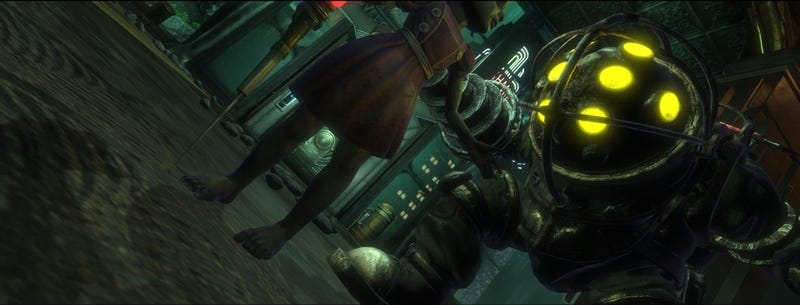
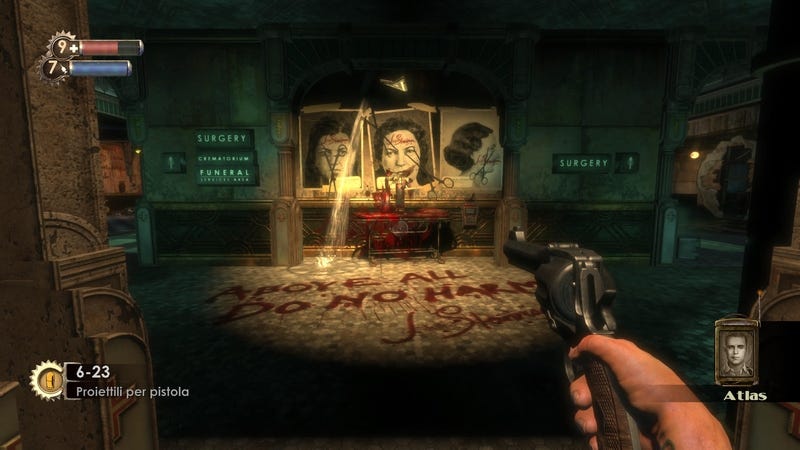
Very nice post. Pessimism is a habit, optimism is a spark that somehow keeps showing up anyway.